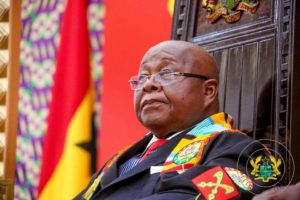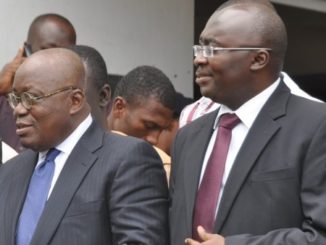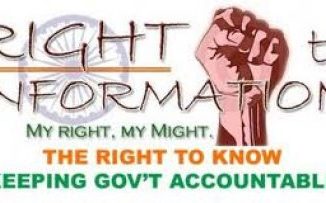 Speaker of Parliament, Professor Aaron Mike Oquaye, has directed a Joint Committee of Youth, Sports and Culture and Legal Constitutional and Parliamentary Affairs to investigate the possibility of regulating churches and other religious groups in the country.
Speaker of Parliament, Professor Aaron Mike Oquaye, has directed a Joint Committee of Youth, Sports and Culture and Legal Constitutional and Parliamentary Affairs to investigate the possibility of regulating churches and other religious groups in the country.
The joint committee has one month to finish its work and submit a report to the House.
Caution
He cautioned the pretence that everything was fine in the religious sector because people could not be allowed to operate outside the parameters of the Constitution.
He said: “If we have to make certain declarations it should be provided for by law and if they have to fulfil certain obligations to the society in which they live, it should be provided for by law.”
Development difficulties
According to the Speaker, there is a need to seriously consider the country’s development difficulties as a national issue and make recommendations whether people should be allowed, in the name of religion, to use work hours to worship.
Prof. Oquaye indicated it was dishonest to use man hours to worship instead of fulfilling the work obligations for which they were paid.
He warned that work hours should not be used for worship or else the country could not achieve its development agenda, and stressed the state could no longer pretend such important matters.
“We are living in a country where priests keep sick people in camps purportedly to heal them, but when they deteriorate, they rush them to Korle Bu.”
“Doctors are accountable for their profession and yet these people cannot be held for malpractice. What kind of unbridled liberty can that be,” he queried?
Religious freedom
In other countries, doctors and nurses, he said, are required to report to the police when a patient is brought to hospital in very bad condition.
“That is how a nation develops,” he stated.
In the statement, Ekow Hayford had argued that despite the Constitution granting religious freedom, it has become necessary to consider some form of regulation on church activities due to their adverse impact on lives.
According to him, the growing number of churches, estimated to be well over 10,000, has attracted charlatans and imposters who parade the streets and fill the media space peddling false wares.
Sad reflection
The situation, he said, is a sad reflection of the state of the country in terms of persons abusing the rights and freedoms guaranteed them under Articles 21 and 26 of the 1992 Constitution.
He lamented that charlatans parading as pastors and prophets prey on the poor and innocent by feasting on their vulnerabilities.
“In the light of this, it is necessary to introduce some form of regulation in the activities of churches and religious gatherings,” he stated.
MPs who contributed to the statement concurred there was a need to fashion out rules to control the activities of churches and other religious groups in the country.
Some churches, they said, have inadvertently become nuisance and threat to society and need to be shut down or operate under established rules.
The members argued that some churches have become virtually businesses and avenues for making money and extortion and yet do not honour any tax obligation.
The Member for Ablekuma Central, Ebenezer Nii Laryea, contended that those who called themselves priests needed to follow the Christian processes in starting and operating a church and stressed some churches have descended into areas difficult to understand; instead of preaching salvation they tend to punish followers with very strange healing procedures and offering lotto numbers.
–
Daily Graphic



